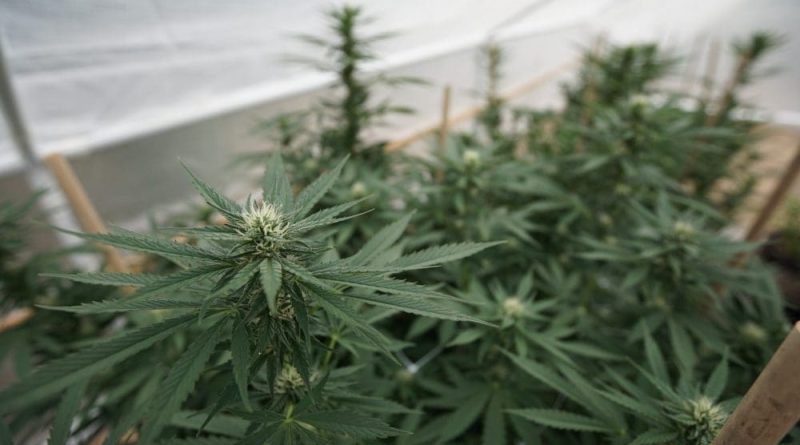New Mexico Steps Up Enforcement Against Illicit Marijuana Operators With Hiring Of New Officers
From toxifillers.com with love
“We’ve become the mecca for ‘mota’…and we have to ask ourselves: Is that really what we want to be?”
By Patrick Lohmann, Source NM
More than three years after New Mexico legalized recreational marijuana, the state has become a national poster-child for recreational marijuana sales, and not in a good way, argues state Sen. Joseph Cervantes (D-Las Cruces).
“We’ve become the mecca for ‘mota’,” Cervantes said, using a slang term for marijuana common in New Mexico. “And we have to ask ourselves: Is that really what we want to be?”
He and other state lawmakers on the Legislature’s interim Courts and Criminal Justice Committee met Monday morning in Taos to discuss the proliferation of shops across the state, as well as their hopes for a new band of cannabis officers tasked with enforcing laws the Legislature enacted when it legalized recreational marijuana in April 2022.
Since legalizing cannabis, New Mexico retailers have sold about $1.7 billion combined in adult-use and medical cannabis, with the help of more than 1,600 licensed cannabis-related businesses such as retailers, testing labs and producers, according to a presentation from state Regulation and Licensing Department officials who spoke at the committee meeting.
While the industry is booming, high-profile examples of marijuana scofflaws in the state prompted lawmakers this session to pass House Bill 10, which funds the hiring and training of a new team of fully certified law enforcement officers empowered to bring criminal charges against those they suspect are lying about the source of the marijuana, exploiting their workers or altering the drug.
In the coming days, the state will advertise for a police chief in charge of the new crew of officers, according to Clay Bailey, superintendent of the New Mexico Regulation and Licensing Division. From there, they’ll hire up to six more officers.
“I really want seasoned people that know what they’re doing, [who have] dealt with drugs and things, and know what they’re getting into,” Bailey said of the new hires.
HB 10 also empowers the new officers to do more forensic accounting within the state’s system for tracking growers from seed to sale. The new hires free up inspectors to undertake audits to determine, for example, whether growers are lying about where their inventory came from or if they’re flooding the market with illegal products, Bailey said.
40 dispensaries and one grocery store
No limits exist in state law on the number of licenses that can be issued, and local jurisdictions also cannot ban cannabis dispensaries from operating, according to the Regulation and Licensing Division, though they can control how far apart they must be. Maestas suggested lawmakers change state law to grant control over licenses to towns and cities.
In Sunland Park, which borders Texas, where recreational marijuana is illegal, up to 40 cannabis retailers exist, state officials said Monday.
“This is just not healthy,” said Cervantes, whose senate district includes Sunland Park. “This is not a healthy environment for my community, for Sunland Park to have 36 [to] 40 dispensaries, one grocery store, maybe one liquor store.”
According to state data presented Monday, the town of less than 20,000 people has generated the second-highest amount of marijuana revenue in the state since April 2022. Regulators have tallied more than $127 million in recreational sales revenue from nearly 3 million transactions. Albuquerque, the highest-earning city, has generated more than $350 million.
According to a 2024 Pew Research Center study, Oklahoma has the highest number of marijuana dispensaries per capita in the country, with 36 per 100,000 residents. Cervantes estimated New Mexico to be about 30 per 100,000, which puts it far ahead of early marijuana adopters California and Colorado.
A coalition of about 100 cannabis businesses in June 2023 asked the governor to issue a pause on new licenses, saying they faced too much competition and chaos from a “flourishing” black market.
The issue has not gone away. Several lawmakers said they want to see the issue addressed in next year’s 30-day legislative session. Though budget-focused, New Mexico Gov. Michelle Lujan Grisham (D) could deem the topic germane.
“I hope you’ll ask the governor to fix what needs to be fixed,” Cervantes told the state cannabis regulators at the meeting, “and have us do that in the remaining administration in the 30-day session coming up.
The governor’s office did not immediately respond to a request for comment late Monday afternoon. However, in a town hall meeting in July in Española, the governor did acknowledge that the state needed to fix its process for licensing, in response to a resident’s complaint about the number of dispensaries.
“Expect the state to propose some restrictions,” the governor said, drawing applause, saying that the licensing “didn’t roll out the way we intended for it to roll out.”
This story was first published by Source NM.
Doctors Group Launches Campaign Empowering More Healthcare Professionals To Join Drug Decriminalization Movement
Photo courtesy of Chris Wallis // Side Pocket Images.


